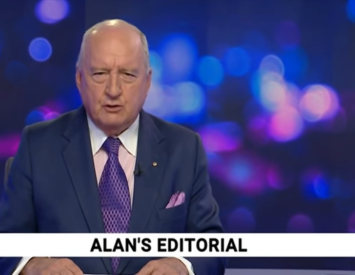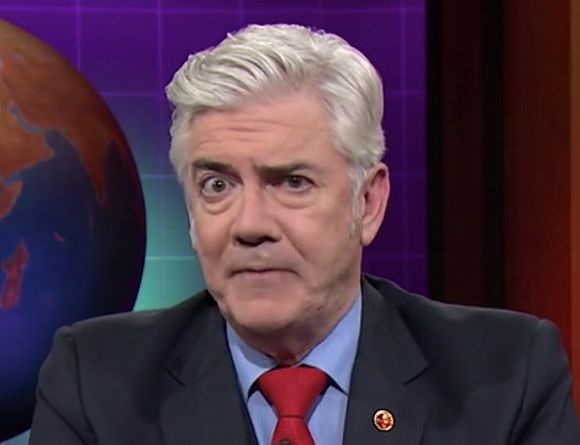The professional broadcaster could be in danger of getting turned into a bull-ring of amateurs and squabbling ideologues, writes Lee Duffield.
ABC setting a standard of fairness
The ABC Charter contained in legislation has the keyword “comprehensive” programming, always read within the organisation as its cue for employed broadcasters to be open to competing views and interpretations — a standard of fairness.
Not that the professional broadcasters always succeed in keeping personal biases out of it, but it is part of their work contract making them accountable. How else can they run a national broadcaster? Watch out for trouble if the ABC, lacking staff of its own, starts handing out airtime to individuals or groups from outside.
It has plenty of signature or celebrity-type ventures in its history, even now sharing a clutch of presenters with the commercials, viz Waleed Aly and Hamish Macdonald going on Channel 10. There have been epicureans like the late Alan Saunders, the bushie Ian McNamara, priests, psychiatrists, other medicos, music aficionados, anglers, motorheads, gardeners and so on.
But in each case, the demands on a professional broadcaster to meet the standard have to be reconciled with the natural tendency of lay broadcasters to think it’s “their” program and try to indulge a preferred line.
Invading the ABC
It is most problematic in the super-sensitive zone of journalism, in news and current affairs. Pressure from special interest groups to negotiate dedicated airtime for their own use means a threat to best practice and fair dealing.
A model for that is the radio program Counterpoint. Conservative interests felt wounded and scandalised that their side was not getting enough free kicks; there had to be a “counterpoint”, a show broadcast on ABC but done by themselves. The current presenter, inheritor of the deal, is none other than Amanda Vanstone, the Liberal Party Immigration Minister from the days of “toughening up” on undocumented migrants and scandals over cases like Cornelia Rau.
The show has interviews with book authors, she gives little homilies and plays her own kind of music. The question about it as an initial ABC capitulation to menacing pressure from the Right wing is its occupation of airtime not available to other sources of opinion. There is no “counter-Counterpoint” hosted by a Julia Gillard or Richard Di Natale, for example.
Pushing the lines
Also in radio is the American element represented principally by Tom Switzer, Director of the Centre for Independent Studies, hosting a show called Between the Lines. The promise of the title is a let-down — it is an orthodox interview show providing interesting but not arcane material.
An academic of American and Australian background, initially from the U.S. Studies Centre at Sydney University, Switzer has evolved a step away from the personal to professional. He's gone from a partisan chat show man, suitable for Fox News, on very familiar terms with his Right-of-centre guests, more towards a broadcast professional mode — the presenter learning to pull his head in as every ABC broadcaster should.
The problem with handing over this airtime is again one of agenda-setting and blocking-off. As said, it can be intelligent material. If there is a line, it is giving time and privileged attention to the anti-China campaign coming from the American Right.
The Centre for Independent Studies is a neoliberal and stridently anti-communist lobby, where the end position in any discourse is known in advance. As such, it cannot, as it might like, be rated as a research institute running curiosity-driven projects seeking new knowledge for its own sake.
Switzer routinely confesses the link when he puts up a CIS speaker, but it is not enough. He needs to resign from his presenter role at the ABC, where he might still remain as an interview subject on occasion, with caveats, for stories about American issues. Alternatively, he might stay on in his present role at the ABC, under the Charter and resign as Director of the CIS. There remains a question as to who at the ABC permitted this unjust and unsustainable conflict of interest. What were they thinking?
More Americana
Monitoring of ABC radio over the last four months has produced a few more instances of Americana. One voice, Salvatore Babones, an Associate Professor in Sociology at Sydney University, devotes much of his time and his publishing effort to China’s expansionism. Formerly from Pittsburg University, he is billed as also an “Adjunct Scholar” of the CIS, a facsimile of the kind of title found at research centres.
The professor’s core academic expertise is in methodology for quantitative sociological research, though he has moved on from this field into global economics (self-advertising as ‘Australia’s globalisation expert’) and, by further extension, sinology — the battle of China. He says he has discovered an “interpretative” quantitative methodology, which perhaps provides a rationale for shifting across from his home discipline into others.
At the third base, China, the gentleman’s published record demonstrates industry, producing day-by-day polemics, though not in the deep zone of scholarship found at first base, his academic discipline — not such as language study for work done off Chinese documents. He does not come up under “China” among the sinologists on the University of Sydney “Find an Expert” service used by journalists.
Introduction to the Australian news media has been through some other channels. There have been outings both in conventional media, especially the ABC and on the partisan side: talking with Alan Jones on radio, The Australian, Quadrant or The Spectator.
Associate Professor Babones is openly an ideological warrior from the U.S. school where liberal thought is a dirty word:
‘The election of Donald Trump and the Brexit vote in the UK have caused fear and panic among liberals worldwide. They argue that the populist backlash represents a dangerous new authoritarianism. But what if the really dangerous authoritarianism is, in fact, their own?’
Economists taking on COVID-19
Another player in from the U.S., Professor Gigi Foster at the University of New South Wales, has been co-hosting an ABC radio show called The Economists with the economics journalist Peter Martin. Theirs is a discipline given over to neoliberalism and unquestioning commitment to constant economic growth. Discipline members are not the best choice for a program about problems with economics — too close to the flame.
On 28 May, a guest on the show, Australian economist in America Justin Wolfers, complained about objections being made to doctrinaire economics thinking:
“Poets and philosophers piss on us as low-level social scientists because they have fancier dinner parties than we do.”
Actually, it is more likely disdain for their role in providing intellectual cover for rapacious business corporations that employ them.
What value a “statistical life”?
Like most laypersons dabbling in media, Foster wants to teach, recommending the study of economics as the key to life, a series of calculations matching opportunity, benefits and costs. She had to be the one to propose the Bolsonaro-Johnson-Trump response to COVID-19: deny or do nothing, or at least don’t let medical measures prevent keeping the economy open.
Here, the beloved systems theory definitely needed some data to justify the argument. Information on the current death toll is actually challenging the idea that the two strategies, “prioritise lives” and “cop the losses”, can be separated at all — in the world of facts, once they rush to open the economy too early, new deaths start crippling the economy.
The assertion brought some notoriety; when invited onto the Q&A television program, she placed an ad for “her” radio show and asked them:
Has anyone thought about how would you get a measure of the traded lives when we lock an economy down? What are we sacrificing in terms of lives? Economists have tried to do that and we try to do that in currencies like the value of a statistical life… we are still potentially better off not having an economic lockdown in the first place because of the incredible effects that you see not just in a short-run way but in many years to come.
That’s a great talking point for a studio guest, but a contentious assertion unsuitable for a broadcaster presenting a program on our ABC.
Lee Duffield has published an extended version of this article on Subtropic.
Media editor Dr Lee Duffield is a former ABC foreign correspondent, political journalist and academic.
Related Articles
- ABC Fact Check proves Government lied about funding
- Staff and unions need to take up the fight for the ABC
- The ABC is on the IPA's hit list
- ABC and SBS fail in their reporting on Bolivia coup
- Lies from both sides in the game of politics
 This work is licensed under a Creative Commons Attribution-NonCommercial-NoDerivs 3.0 Australia License
This work is licensed under a Creative Commons Attribution-NonCommercial-NoDerivs 3.0 Australia License
Support independent journalism Subscribe to IA.















